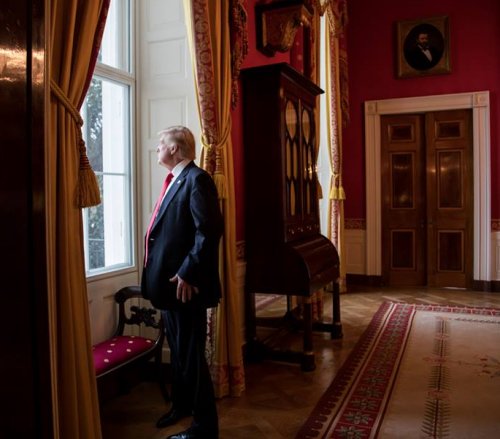With Pompeo in Charge, Watch the State Department Get its Swagger Back
“Secretary of State Mike Pompeo is on a mission to help the State Department ‘get its swagger back,’” Jackie Gingrich Cushman writes in Townhall. She explains that Secretary Pompeo’s leadership style “is direct and engaging and appears committed to bringing real change to the State Department.”
Secretary of State Mike Pompeo is on a mission to help the State Department “get its swagger back.” Its charge is “to be professional, to deliver diplomacy, American diplomacy around the world,” Pompeo told European allies at NATO headquarters last week in Brussels. His personal charge is “to build that esprit and get the team on the field so that we can effectuate American diplomacy.”
Pompeo comes to the job well prepared. He graduated first in his class at West Point, served in the Army and earned a law degree from Harvard University. He served three terms as congressman from the 4th District of Kansas before becoming director of the CIA. He is direct and engaging and appears committed to bringing real change to the State Department.
His first week in office has set the pace and allows us a view into his perspective. Since being sworn in last Thursday, Pompeo has traveled not only to Brussels, but to Riyadh, Tel Aviv and Amman. He made many public appearances, answered numerous reporters’ questions and referred often to his mission.
On May 1, Pompeo addressed the State Department employees for the first time as Secretary of State. In his public remarks this past week, he has clearly articulated that his goal is for the State Department “to deliver President Trump and America’s foreign policy around the world, to be the diplomatic face that achieves the outcomes that America so desperately needs to achieve in the world.”
While in Brussels, Pompeo laid out the U.S. perspective and resolve regarding NATO. “This alliance has been an essential pillar of American security interests for decades,” he said. “Some of our strongest bilateral partnerships are encompassed within this alliance, and I made it clear today that the United States is eager to continue to lead here in NATO.”
Pompeo clarified Trump’s support for Article 5, under which the alliance’s members consider an attack on one country as an attack on all of them. “Our commitment…to the collective defense under Article 5 of the Washington Treaty remains ironclad…Threats to our common security come from many sources and we must address them all to keep people safe around the world.”
Pompeo also said that other NATO members should increase defense spending and burden sharing. Regarding Russia, Pompeo stated that “The United States has made abundantly clear that NATO should not return to business as usual with Russia until Moscow shows a clear change in its actions and complies with international law.” Pompeo also articulated that terrorism had to be defeated jointly.
In Riyadh, Pompeo said Iran is “the greatest sponsor of terrorism in the world, and we are determined to make sure it never possesses a nuclear weapon.”
While in Jordan, Pompeo stated “we do believe the Israelis have the right to defend themselves, and we’re fully supportive of that.” He also noted that “we remain deeply concerned about Iran’s dangerous escalation of threats to Israel and the region and Iran’s ambition to dominate the Middle East remain.”
Pompeo recognized “President Trump’s maximum pressure campaign and the work that has been done all around the world to apply pressure to North Korea. We are encouraged by President Moon and Leader Kim Jong-un’s stated goal of complete denuclearization.” He reinforced that “our objective remains unchanged. We’re committed to permanent, verifiable, irreversible dismantling of North Koreans’ weapons of mass destruction programs without delay.”
Pompeo referred several times during his trip to choices that all countries have, along with the consequences of their choices. “We would love nothing more than them [Russia] to rejoin, right, the democratic world and behave in ways that they’re not doing today. So very much prepared to have that dialogue; it’s their choice if they want to be part of that or not.”
For North Korea, “Kim Jong-un’s going to have to make a decision,” said Pompeo. “He’s going to have to make a big decision. Does he want the pressure campaign to continue? …Or is he looking for something big and bold and different, something that hasn’t happened before?”
Pompeo also understands that “the United States diplomatic corps needs to be in every corner, every stretch of the world, executing missions on behalf of this country.”
While Pompeo has yet to clearly lay out the tactics that will be needed for the State Department to get its “swagger back” he has made great strides in a week.
But, by clearly articulating the president’s foreign policy, providing clear choices to other nations, and reaffirming the importance and reach of American diplomacy, with a focus on execution and outcomes. Pompeo has made a real start.




Recent Comments